

|
Building resilience in turbulent times Complex interactive processes in communities and organisations 3rd International CIP Conference
July 1, 2016
in Antwerp, Belgium

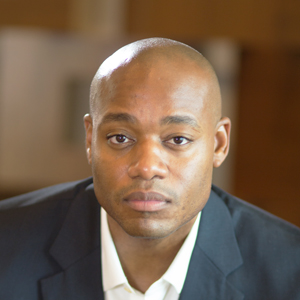
Hacker, Hoaxer, Whistleblower, Spy.
Critical advice for protecting your organization from hackers stealing your data, turning it into a hostage situation and a media circus
The world has two types of companies: those that know they’ve been hacked, and those that do not. You cannot stop every cyberattack, but you can prepare for them and bounce back as quickly as possible.
In this keynote, Dr. Summers, one of the world’s leading ethical hackers and cyber strategists, describes how a hacking event can ruin your organization and shares the latest research and advice for successful cyber crisis management. He will provide guidance and insights on all issues pertaining to hackers and their impact on organizations and society at large.
Dr. Summers can be introduced as “a hacker with a PhD”. As a researcher, his focus is on the cognitive psychology of hackers, in other words he can tell us How Hackers Think. Advisor of many Fortune 500 companies and organisations in the public sector worldwide, he speaks regularly at prestigious academic institutions. He developed cyber security courses as well as innovative and entrepreneurial programs.
As President of Summers & Company, a cyber strategy and organizational design consulting firm, Dr. Summers helps clients understand cyber security risks within their organizations.
At the iSchool (University of Maryland), he teaches cybersecurity courses as well as developing innovative and entrepreneurial programs and opportunities that enable students and faculty to engage with the community in new ways.
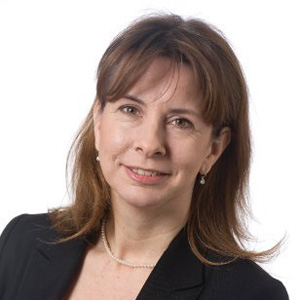
Coordinated crisis communication: learned lessons in Swedish governments, agencies and society
In Sweden, crisis managers and crisis communicators are making a lot of progress when it comes to communicating in crises. Since the 2004 Indian Ocean earthquake and tsunami, the Swedish society, its agencies, counties and municipalities have been developing routines, common grounds and networks for coordinating the crisis communication efforts.
Which experiences have been important? How do these affect the coordinated crisis communication today? These are some of the questions that this keynote will try to answer. The keynote will also describe in which situations is it extra important to coordinate communication to the public and give some examples of how this can be done.
Stina Wessling has been working in crisis communication since 1999, and has written a handbook in crisis communication for the public sector. She is a former police officer who got a university degree in media- and communication studies and is now a consultant in crisis communications.
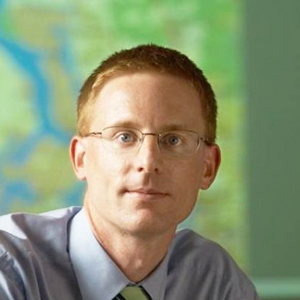
Effective communication during Brussels Lockdown and other elevated terrorist threats and attacks in Belgium
How to inform the public about an unknown and invisible threat? What are society’s expectations when a severe terrorist threat holds on for days, or even for weeks? November 2015 was overshadowed by the IS attacks in Paris. Merely a few days later, Brussels was the subject of an elevated terrorist threat. Severe security measures were taken, and the security warning level was raised to the highest mark.
In an attempt to inform civilians in the most optimal way concerning the precautionary measures taken by the government, Belgium’s Federal Crisis Center successfully applied the Work Process Crisis Communication (WPCC) methodology. WPCC starts with analyzing the (social) media as a way to make informed decisions about the communication strategy and, subsequently, to elaborate on a written and spoken output.
For more than a week, 24 hours a day, the Federal Crisis Center at Belgium’s Home Office had been organizing strategic coordination meetings, managed multiple collaborators, handled severe media pressure, addressed thousands of incoming phone calls on their information number, and informed a massive number of visitors on their online platforms. Although the WPCC was put under severe pressure, it successfully resisted the test.
Peter Mertens is spokesman and communication team coordinator of the Belgian Federal Crisis Center. He will share his experiences and lessons learned from the first row during the recent Brussels Lockdown and related terrorism threat events.

Now available: Full Conference Programme
| Morning from 9.30 am |
| Discussion Welcome and introduction of the day
Prof. Dr. Bart Cambré
Associate Dean Research – Antwerp Management School (Belgium) |
 Keynote Effective communication during the Brussels airport & subway attacks and other elevated terrorist threats in Belgium
Peter Mertens
Coordinator and spokesman – Federal Crisis Center (Belgium) |
 Keynote Coordinated crisis communication: lessons learned in Swedish governments, agencies and society
Stina Wessling
Wessling Kommunikation AB (Sweden) |
| Discussion The “Bubble of Knowledge” project: a closer look
Discussion and member mapping by the “BoK” team
Jan Vervoort – David Matthys – Tim Van Achte
|
| Lunch at 13 pm |
| Discussion Lunch table sessions
During the lunch we want to provide you with the possibility to learn more about CIP Institute and our various activities. Join us at one or more of these 4 tables:
|
| Afternoon until 6 pm |
Workshops
These six workshops were selected from our Call for Workshops. They are divided in three tracks of two workshops each. More information
|
 Keynote Hacker, Hoaxer, Whistleblower, Spy.
Dr. Timothy Summers
Executive Advisor and Strategist – Summers & Company (US) |
| Discussion Couch session
In a collective session, the keynote speakers answer questions and give feedback on various remarks and reflections made during the day.
|
| Discussion Closing arguments & next steps
Prof. Juan Manuel Domínguez Ortega
Managing Partner SD Group (Spain) Dr. Hugo Marynissen
Antwerp Management School (Belgium) |
| Drink and surprise act! |
| Dinner at 7 pm (facultatively) |
Thursday 30th of June, 2016
9 am
The day before the Conference, the Annual Meeting will be held for our Institute committees at the same location in Antwerp. If you want to participate in the further development of the CIP Institute and its activities, contact us for more information.
Friday 1st of July, 2016
9.30 am - 6 pm
We provide a global platform for sharing knowledge, insights and experiences about handling crises. The conference is one of the activities built on that mission. The programme consists out of:
Register now to join us
Our programme is subject to possible last minute changes
![]()


This year's conference will be held at
Antwerp Management School
Address:
“Het Brantijser” building
Sint-Jacobsmarkt 9-13
2000 Antwerpen
Belgium
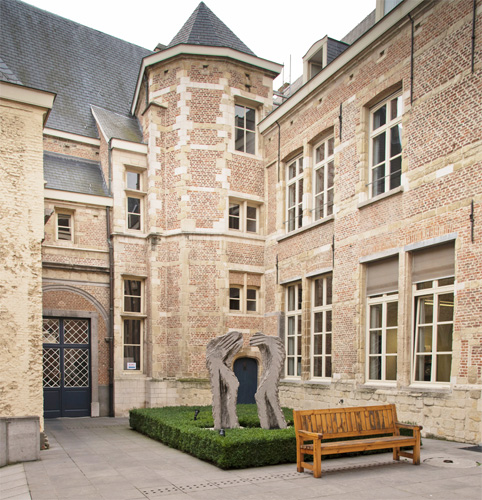

The CIP Institute is a non-profit organization that brings together scientists and practitioners from various disciplines in an inspiring and innovative platform to exchange and develop knowledge about the Complex and Interactive Processes (CIP) in the field of crisis. It was founded in 2013 and currently groups around 70 members from eleven countries worldwide.
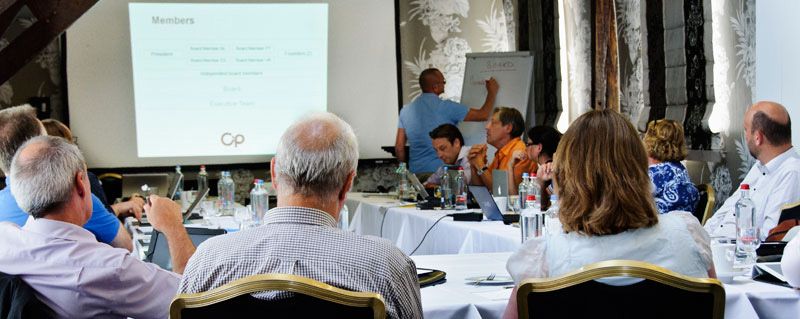
All founding members are working in fields related to risk/crisis communication and/or management. CIP Institute successfully fulfils its aim to bring together members from various backgrounds, including academics, researchers, practitioners and consultants.
Don’t miss the opportunity to join our organization that is going to make the difference in future developments about risk and crisis. Become member to support our objectives, join our efforts, join the network and access member-only content.
Members who want to spend time and energy in co-creating the next steps of the CIP Institute and community are welcome to attend our events or develop specific initiatives. The next Annual Meeting will be held during the 2016 Event in Antwerp.
If you think involvement in CIP Institute’s future suits your interests, please write to
Our members are related to various aspects of crisis, be it preventive, corrective, or in terms of recovery.
Their areas of expertise include:

The persons below have participated in the foundation of the CIP Institute. They are also contributing to the further development of the Institute in our various Institute committees.
| Name | Position | Affiliation | Country | |
|---|---|---|---|---|
 |
Luc Adriaenssens | General Manager | Belgian Pharmaceutical Association |
Belgium |
 |
Daniel Alonso | Partner | SD Group | Spain |
 |
Dalila Antunes | Environmental Psychologist | Factor Social Ambiqual |
Portugal Mozambique |
 |
Ricardo Arrabaça | Officer | Navy | Portugal |
 |
Ute Bock | Risk Manager | Fiat Chrysler Rimaco/FCA | Switzerland |
 |
Bert Brugghemans | Fire Chief | Antwerp Fire Service Personal Blog |
Belgium |
 |
Luc Claessens | Coordinator Safe Schools | City of Antwerp | Belgium |
 |
Juan Manuel Domínguez | Managing Partner | SD Group | Spain |
 |
Hugo Ketels | Interim/Crisis General Manager | Equity Care Partners | Belgium |
 |
Dr. Mike Lauder | Director/Owner | Alto42 | United Kingdom |
 |
Dr. Hugo Marynissen | Managing Partner | PM risk-crisis-change | Belgium |
 |
Prof. Dr. José Palma-Oliveira | Professor | University of Lisbon | Portugal |
 |
Stijn Pieters | Managing Partner | PM risk-crisis-change | Belgium |
 |
Tim Van Achte | Advisor | PM risk-crisis-change | Belgium |
 |
Anne-Marie van het Erve | Managing Partner | Inconnect | The Netherlands |
 |
Frank Vergeer | Managing Partner | Inconnect | The Netherlands |
 |
Jan Vervoort | Business Continuity Manager | V.V.M. De Lijn | Belgium |

Complex Interactive Processes (CIP) Institute vzw is a non profit association
Address: K. M. Hendrikaplein 57
9000 Ghent, Belgium
Company n°: BE 0553 488 532
IBAN: BE87 0688 9978 8494 (BIC: GKCCBEBB)
Bank where account is held: Belfius Regio Zuid-Gent / Business Center - Koning Albertlaan 142 - 9000 Gent - Belgium
For more information, please contact us by e-mail: